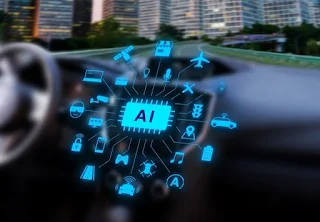Artificial intelligence (AI) has been advancing at a rapid pace, transforming the way we live and work. With new discoveries and applications emerging all the time, it’s crucial to stay on top of the latest and most impactful developments in this field. In this article, we explore the major advances and trends in AI, highlighting what you need to know to stay up to date.
1. Large-Scale Language Models (LLMs)
LLMs, such as GPT-4 and Bard, are capable of generating text, translating languages, writing different types of creative content, and answering questions in an informative way. 1 They have revolutionized the way we interact with AI, opening the door to more advanced chatbots, personalized virtual assistants, and automated content creation tools.
2. Generative AI
Generative AI allows you to create images, videos, music, and other types of original content from textual descriptions or examples. This technology has applications in a variety of areas, such as graphic design, advertising, entertainment, and even in the creation of new medicines and materials.
3. Autonomous Machine Learning
Autonomous machine learning (AutoML) allows AI to learn and improve its models without the need for human intervention. This accelerates the development of new AI applications and democratizes access to this technology, allowing smaller companies and individuals without specialized technical knowledge to create their own models.
4. Explainable AI
Explainable AI (XAI) seeks to make AI models more transparent and understandable, allowing users to understand how AI reaches certain conclusions. This is essential to ensure trust and responsibility in the use of AI, especially in critical areas such as healthcare, finance, and justice.
5. Ethical and Responsible AI
With the increasing impact of AI on our lives, ethics and responsibility in the development and use of this technology become increasingly important. The AI community is increasingly concerned about ensuring that AI is used in a fair, transparent and beneficial manner, avoiding bias and discrimination.
6. Applications in Various Areas
AI is being applied in various areas, such as healthcare (disease diagnosis, drug development), finance (risk analysis, fraud detection), retail (personalization of offers, product recommendations), industry (process automation, quality control) and many others.
7. Challenges and Opportunities
Despite the advances, AI still faces challenges such as the need for large volumes of data for training, the difficulty in dealing with unstructured data and concerns about the impact on the job market. However, the opportunities are countless and AI has the potential to positively transform society.
Conclusion
Artificial Intelligence is constantly evolving, with new discoveries and applications emerging all the time. It is essential to keep up with advances in this area to understand the impact of AI on our lives and take advantage of the opportunities it offers. By staying up to date on the latest trends and challenges, you’ll be prepared to join the AI revolution and contribute to a smarter, more innovative future.


Comments
Post a Comment